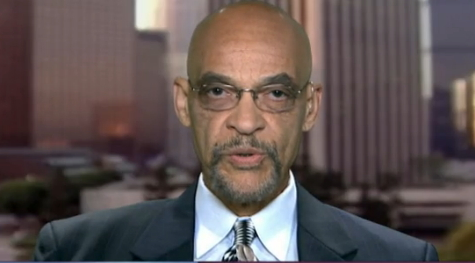Earl Ofari Hutchinson
New Jersey Democratic Senator Corey Booker flatly called the Georgia gubernatorial election a theft for GOP winner Brian Kemp. This was not partisan hyperbole. Thousands of eligible votes weren’t registered, were tossed, discounted, or ignored. The process was only slightly less muddled and outrageous in Florida where there were also widespread reports of irregularities, incompetence, fraud and manipulation.
The result in both states was that Democratic contender Stacey Abrams in Georgia and Andrew Gillum in Florida didn’t make history by being the first black governor in their states. Instead they made history by being embroiled in rancor and controversy over the vote process. The brutal reality, though, is that no matter how many votes Gillum and Abrams got or would have gotten in a fair process where all the votes were allowed and counted, their defeat was almost pre-ordained before the first shout of voter fraud was made in their races.
Voter suppression is a well-documented fact of life in American politics. The GOP has welded it as a potent weapon to assure its continued domination of American politics. The even more terrifying reality is that vote suppression has the force of law behind it. Kemp in Georgia was the crudest example of that. As secretary of state he could legally make the call about which votes could and couldn’t be counted. The lawsuits that were filed against his blatant vote suppression were at best stop gap efforts to blunt some of the damage. They did absolutely nothing to change the legal authority Kemp had to make the call about the vote process.
The vote suppression ploys the GOP employ in a variety of other stats include closing polling lace, limiting voting hours, a rigid requirement for ID, and outright purging voters from he rolls if they haven’t voted in a recent election. These were all upheld by various courts including the Supreme Court. With few exceptions, the other GOP voter suppression ploy of tightly gerrymandering districts to make it impregnable to a Democratic contender has also been let stand in court challenges. This combined with the control of the vote process by GOP governors and GOP controlled legislatures in Florida and Ohio, the two states that virtually determine who sit in the Oval Office, heighten the danger to Democrats in 2020.
But it’s the legality of voter suppression that is the tough nut to crack. Its impregnability was made possible by the GOP’s crass, cynical, but stupendously successful assault on the landmark 1965 Voting Rights Act. In 1981 despite some grumbles and idle threats to oppose its renewal from a few in the Reagan administration, President Reagan dutifully signed the renewal legislation.
A quarter century later, a core of House Republicans stalled the legislation for more than a week and demanded that hearings be held. They used the same old argument that it punishes the South for past voting-discrimination sins, and they didn’t like the idea of bilingual ballots again. Despite the challenge, President Bush signed the renewal of the Voting Rights Act in 2006. The renewal by two conservative GOP presidents seemed to assure that any effort to scrub the Voting Rights Act from the federal books was a pipe dream.
It wasn’t. The GOP demanded that the High Court scrap the Act as outdated, discriminatory, and a blatant federal intrusion into state’s rights. GOP State Attorney Generals in several states endorsed the challenge.
The Supreme Court obliged. In a landmark ruling it dumped the key requirement that Southern states get “preclearance” from the Justice Department before making any changes in its voting rights laws and procedures.
The GOP kicked the voter suppression into high gear. It pecked at eroding the Act with the rash of photo identifications laws that the GOP governors and GOP controlled state legislatures have enacted. They have one aim, and that’s to discourage and damp down the number of minority and poor voters that overwhelmingly vote Democratic.
Despite the solid bipartisan support that the 1965 Voting Rights Act got in prior congresses and from GOP presidents, the Act has always been more controversial than many have believed. The popular myth is that congressional leaders were so appalled and enraged at the shocking TV clips of Alabama state troopers battering civil rights marchers in Selma in April 1965 that they promptly passed the landmark law that restored voting rights to Southern blacks. What’s forgotten is that the marchers were there in the first place because the bill was badly stalled in the Senate and the House. It took nearly five months to get the bill passed. That odious history still badly discolors and even undergirds the GOP vote suppression ploys of today. It played a big part in Gillum and Abram’s losses.
The Democrats in the freshly minted House will introduce a series of democracy reforms in Congress to break the stifling grip of voter suppression hijinks. A centerpiece will be automatic voter registration which will automatically add eligible voters to the rolls. The democracy reforms will die a quick death in the GOP controlled Senate. Their quick death will spotlight the grave danger that voter GOP suppression poses to the Democrats in 2020.
Earl Ofari Hutchinson is an author and political analyst. He is the author of the forthcoming Why Black Lives Do Matter (Middle Passage Press). He is a weekly co-host of the Al Sharpton Show on Radio One. He is the host of the weekly Hutchinson Report on KPFK 90.7 FM Los Angeles and the Pacifica Network.

